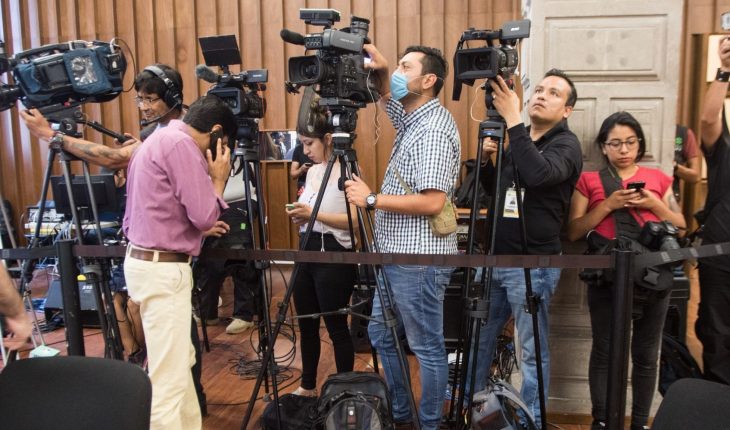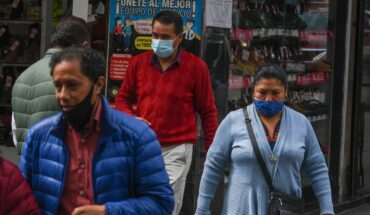The conditions for exercising freedom of expression in Mexico have deteriorated in the last year, in the face of constant stigmatization and discrediting against journalists, media and activists, promoted since the presidency and government bodies, according to a report prepared by universities and social organizations.
The report “Freedom of Expression in Mexico 2020” notes that this is in addition to precarious working conditions, and the lack of knowledge and use of protocols for risk prevention, self-protection and codes of ethics.
You may be interested: In three months, 53 journalists were attacked for their COVERAGE of COVID-19 in Mexico
According to the analysis carried out by the Security Analysis Collective with Democracy (CASEDE), 22 states have weak legal and institutional frameworks for the prevention and protection of journalists and human rights defenders.
Only four states have specialized areas for investigating crimes against freedom of expression, and in the 32 entities the existence of laws that criminalize or civilly punish the exercise of freedom of expression persists.
The states also failed to demonstrate capabilities to conduct risk analysis: there are no technical capacities to record homicides and assaults in an approved manner, let alone to convert them into relevant information, which “prevents serious diagnoses of the problem, and therefore the (protection) mechanisms are intended to fail,” the report states.
This lack of a legal framework that lays the foundations for federal coordination with states, coupled with regulatory and institutional weakness, “gives an account of the weakness of the protection and justice scaffolding for journalists and human rights defenders that the Mexican State has.”
Among the main problems of journalists in Mexico detected by CASEDE are insecurity, daily assaults by police, arbitrary detentions, the constant discrediting and stigmatization of information work and that spending on official advertising continues to be an instrument of pressure on the media.
On the Protection Mechanism and access to justice, he points out that the authorities avoid investigating crimes against freedom of expression, so that when they are raised they investigate them as common crimes.
CASEDE considers that the Protection Mechanism has bureaucratic processes and is unable to respond to local realities.
According to the Collective, journalists do not go to the Federal Mechanism “because of lack of trust in the institution and for fear of safeguarding their information and personal data”.
In addition to the risks of the profession, women face harassment and harassment, mainly sexually, by government officials, but also within the media where they work. Most companies do not have protocols or training to prevent and address gender-based violence.
Read more: 2019 recorded the highest number of attacks on journalists of the last decade: Article 19
Human rights defenders at risk
Coupled with the disinformation and social polarization promoted from the federal government, human rights defenders work in a context of ongoing risk.
The CASEDE report indicates that public officials continue to be regarded as the main source of aggression against human rights defenders. In the case of environmental protection, employers are also perceived as a focus of risk.
In the case of women, they face various assaults arising from social conservatism against the legal interruption of pregnancy or the presence of women in leadership spaces, explains the document.
Discrimination, ignorance and conservatism also put the LGBTTT+ community at risk.
Because the protection measures granted by the government have not been effective in some cases of threatened advocates, there is mistrust among activists to seek protection.
Therefore, each rights defender organization develops its own networks with other organizations related to its issues.
While there are many fronts on which to initiate the strengthening of freedom of expression in Mexico, the first is undoubtedly for state governments to take greater responsibilities to create local conditions for journalists and human rights defenders to conduct their activities without fear.
In addition, “the media also has a number of responsibilities to cover, starting with improving training, professionalization and working conditions (contracts, pwages),” concludes the report.
What we do in Animal Político requires professional journalists, teamwork, dialogue with readers and something very important: independence. You can help us keep going. Be part of the team.
Subscribe to Animal Politics, receive benefits and support free journalism #YoSoyAnimal.
translated from Spanish: Stigmatized and with precarious work, the situation of journalists
July 17, 2020 |





